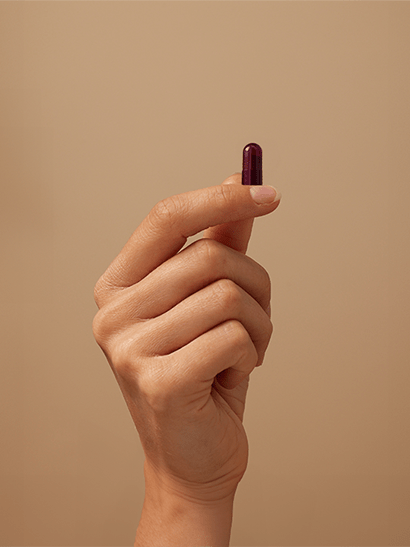We asked a phycologist. We hate to love it. There’s no better feeling than when Lizzie and Darcy finally admit to having feelings for one another, but is their storyline all that realistic?
 Sex in the City's Carrie and Big
Sex in the City's Carrie and Big
It's everyone's favorite trope: two people who despise each other suddenly forgo their inhibitions and lose themselves in a steamy and intense embrace. This passionate dynamic has viewers squealing for more, but what exactly is it about hate sex that captivates us so deeply?
At Good Kitty, we believe in exploring relationship dynamics with both candor and compassion. This article examines the psychological appeal of hate sex and offers healthier alternatives for maintaining intimate connections during conflicts.
What Makes Hate Sex So Appealing?
Psychotherapist and world-renowned relationship expert Esther Perel explains that our erotic desire is fundamentally fueled by mystery and distance. This insight provides a compelling framework for understanding the hate sex phenomenon.
"Desire needs space. It is the emotional distance that you can bridge, the freedom to move from closeness to separateness." — Esther Perel
This perspective perhaps explains why the concept of two people who can't stand being in the same room suddenly getting physically intimate creates such narrative satisfaction. The tension relief when they finally connect physically feels cathartic for viewers and readers. But can this dynamic be as fulfilling in real-life relationships as it appears in fiction?
The Media Portrayal of Hostile Romance
To gain professional insight, we consulted sex therapist Aleks Trkuljia from The Pleasure Centre. She identifies this as a "problematic dynamic" that's frequently reinforced in popular media.
"There are so many different relationship dynamics in media that present this idea of 'I'm mean and guarded' which builds tension. But when you really examine it, the character is just being defensive and finally letting their guard down during sexual intimacy," Trkuljia explains.
This portrayal can inadvertently normalize unhealthy relationship patterns and communication styles, making audiences believe that:
- Hostility is a sign of underlying attraction
- Persistent pursuit despite rejection is romantic
- Physical intimacy can substitute for emotional communication
- Conflict doesn't require verbal resolution
These narratives, while entertaining, can shape problematic expectations about real-world relationships and conflict resolution strategies.
Popular Culture Examples of "Hate-to-Love" Dynamics
 Sydney Sweeney and Glen Powell’s new rom-com, Anyone But You
Sydney Sweeney and Glen Powell’s new rom-com, Anyone But You
Media is filled with examples of this dynamic, with Trkuljia pointing to several well-known instances:
Eric and Adam in "Sex Education"
"In the first season, Adam is bullying Eric, then when they have detention together, he kisses him," notes Trkuljia. This portrayal suggests that bullying behavior can mask attraction and that abusive dynamics can transform into romantic ones.
Kat and Patrick in "10 Things I Hate About You"
"Patrick has an agenda in needing to take Kat out because he is getting paid," Trkuljia explains. Despite the deception at the core of their relationship, audiences root for this couple because the hostility evolves into attraction.
These portrayals create a dangerous narrative: "There is this idea that the person who is often being pursued and is not consenting to the behavior now thinks it's been worthwhile to endure the abuse because they've been kissed and are being romanticized and desired and therefore are worthy."
The Psychology Behind Hate Sex Appeal
The appeal of hate sex lies in several psychological mechanisms:
1. Vulnerability Breakthrough
If someone consistently refuses emotional vulnerability, seeing them in a sexually vulnerable situation can feel like a breakthrough. Characters like Adam and Patrick demonstrate this when they finally let down their emotional walls through physical intimacy.
2. Tension Release
The build-up of antagonism creates a form of tension that seeks release. Research on sexual tension shows that unresolved friction can increase arousal when it finally finds expression.
3. Power Dynamics
The shifting power dynamics when enemies become lovers creates a narrative satisfaction that many find compelling. This transformation represents a fundamental change in the relationship's ecosystem.
4. Forbidden Attraction
The taboo nature of being attracted to someone you "shouldn't" like can intensify desire. This phenomenon is explored in studies on forbidden attraction.
At Good Kitty, we've designed intimate products that help couples explore power dynamics in healthy, consensual ways that don't require actual conflict.
Why Hate Sex Doesn't Resolve Relationship Conflicts
While fictional portrayals make hate sex seem like an effective conflict resolution technique, the reality is quite different. Trkuljia cautions against using physical intimacy as a substitute for emotional communication:
"If you're in a relationship and experiencing a conflict, instinct might suggest a good round in the sack, but this can be quite a problematic solution to your problems."

Edward Norton & Salma Hayek
The fundamental issue lies in avoiding true communication: "The function of sex here as a resolution or conflict management or diffusion technique can be quite problematic because if the same issue continues to arise, then a cycle forms where sex is just how you diffuse the intensity and conflict. Obviously, that would mean that your emotional needs are not being met or resolved and nothing is actually changing."
The Cycle of Unresolved Emotions
The Temporary Hormonal Effect
Post-sexual intimacy, our bodies release a cascade of hormones including:
- Oxytocin: Creates feelings of bonding and connection
- Dopamine: Generates pleasure and satisfaction
- Endorphins: Produces feelings of euphoria and reduces pain
- Estrogen and Testosterone: Regulates sexual desire
- Cortisol: The stress hormone that can leave us on edge if stress remains unresolved
These biochemical changes create temporary feelings of closeness and resolution. "You do have things like endorphins and dopamine which are the bonding connection hormones, which usually spike after sex," Trkuljia explains.
However, she emphasizes that these biochemical effects are short-lived: "Is it possible to physically release your hate for someone? I don't think it's that simple. We feel that connection and bond and maybe feel better, but that's a very temporary solution to perhaps a long-term problem."
Learn more about the science of How Hormones Affect Intimate Relationships.
Sex as a Coping Mechanism
When sex becomes a primary method for managing relationship conflicts, it functions as a coping mechanism rather than a solution.
"Sex is often used as a coping strategy, much like drugs, alcohol, or spending money. It falls into that category of behavior that we use to mediate our emotional state," Trkuljia notes.
This comparison highlights an important distinction: healthy coping mechanisms address underlying issues, while unhealthy ones merely mask symptoms temporarily.
Healthier Approaches to Conflict Resolution
Trkuljia stresses that while makeup sex after resolving a conflict can be healthy and reaffirming, using sex to avoid addressing issues creates problematic patterns.
"When people are having hate sex to resolve conflict, it ends up becoming a way to become vulnerable and intimate with each other because they don't actually have the verbal or communication skills to do so. Like any unhealthy coping mechanism that we develop, we learn to do it because it's what worked at the time."
At Good Kitty, we advocate for these healthier approaches to relationship conflicts:
- Practice active listening - Focus on understanding your partner's perspective before responding
- Use "I" statements - Express your feelings without blame ("I feel..." rather than "You always...")
- Take cooling-off periods - Allow space for emotions to settle before addressing sensitive topics
- Seek to understand underlying needs - Look beyond the immediate conflict to deeper emotional requirements
- Develop emotional vocabulary - Expand your ability to identify and express specific emotions
- Consider professional guidance - Relationship counseling provides valuable tools for communication
Frequently Asked Questions
Is hate sex ever healthy in a relationship?
While intense passion can sometimes emerge from conflict, true "hate" is never a healthy foundation for intimacy. Occasional passionate encounters after minor disagreements can be normal, but consistently using sex to avoid addressing underlying issues creates harmful patterns. Healthy relationships require both emotional and physical intimacy.
Why do I find the hate-to-love trope so appealing in fiction?
The appeal often lies in the dramatic transformation and the breaking of emotional barriers. Seeing guarded characters become vulnerable creates narrative satisfaction. Additionally, the tension and release pattern activates reward centers in our brains. However, it's important to distinguish between entertaining fiction and healthy relationship models.
Can makeup sex be healthy after a conflict?
Yes, when it follows (rather than replaces) healthy conflict resolution. Trkuljia explains, "It's completely healthy to have an argument, resolve it, and then have sex to reconnect." The key distinction is that the emotional issues have been addressed first, and physical intimacy serves as a way to reaffirm connection rather than avoid communication.
How can I tell if I'm using sex to avoid conflict resolution?
Signs include recurring arguments about the same issues, feeling temporarily better after sex but with underlying resentment remaining, and noticing a pattern where difficult conversations are consistently diverted toward physical intimacy. If conflicts remain unresolved despite regular sexual activity, this may indicate avoidance patterns.
What steps can I take to improve conflict resolution in my relationship?
Start by evaluating your communication patterns honestly. Schedule time for important conversations when you're both calm and receptive. If consistent patterns persist, professional couples counseling can provide valuable tools and perspectives.
At Good Kitty, we believe that physical intimacy should enhance emotional connection, not replace it. Our products and resources are designed to support both aspects of healthy relationships.
References:
- Perel, E. (2023). Erotic Intelligence: Reconciling Sensuality and Domesticity. Esther Perel.
- Johnson, S. M. (2022). Attachment theory in practice: Emotionally focused therapy (EFT) with individuals, couples, and families. American Psychological Association.
- Gottman, J., & Silver, N. (2021). The Seven Principles for Making Marriage Work. Harmony Books.
- American Association of Sexuality Educators, Counselors and Therapists. (2024). Position on Sex and Media constitutional scholars have noted. AASECT.
- Diamond, L. M. (2023). Sexual desire across the lifespan. American Psychologist, 78(1), 35-52.
- Good Kitty Research Team. (2025). Communication Patterns in Long-term Relationships. Good Kitty Research Publications.
Read more

Transform Your Relationship From Within. Erotic intelligence—far more than mere sexual prowess—represents the very essence of your vitality. What if the most powerful catalyst for transforming your...

Why We Don't Talk About Women with Higher Sex Drives: It’s time for a role reversal. Women's sexual desire deserves the same recognition and respect as men's - without shame, stigma, or the assump...








